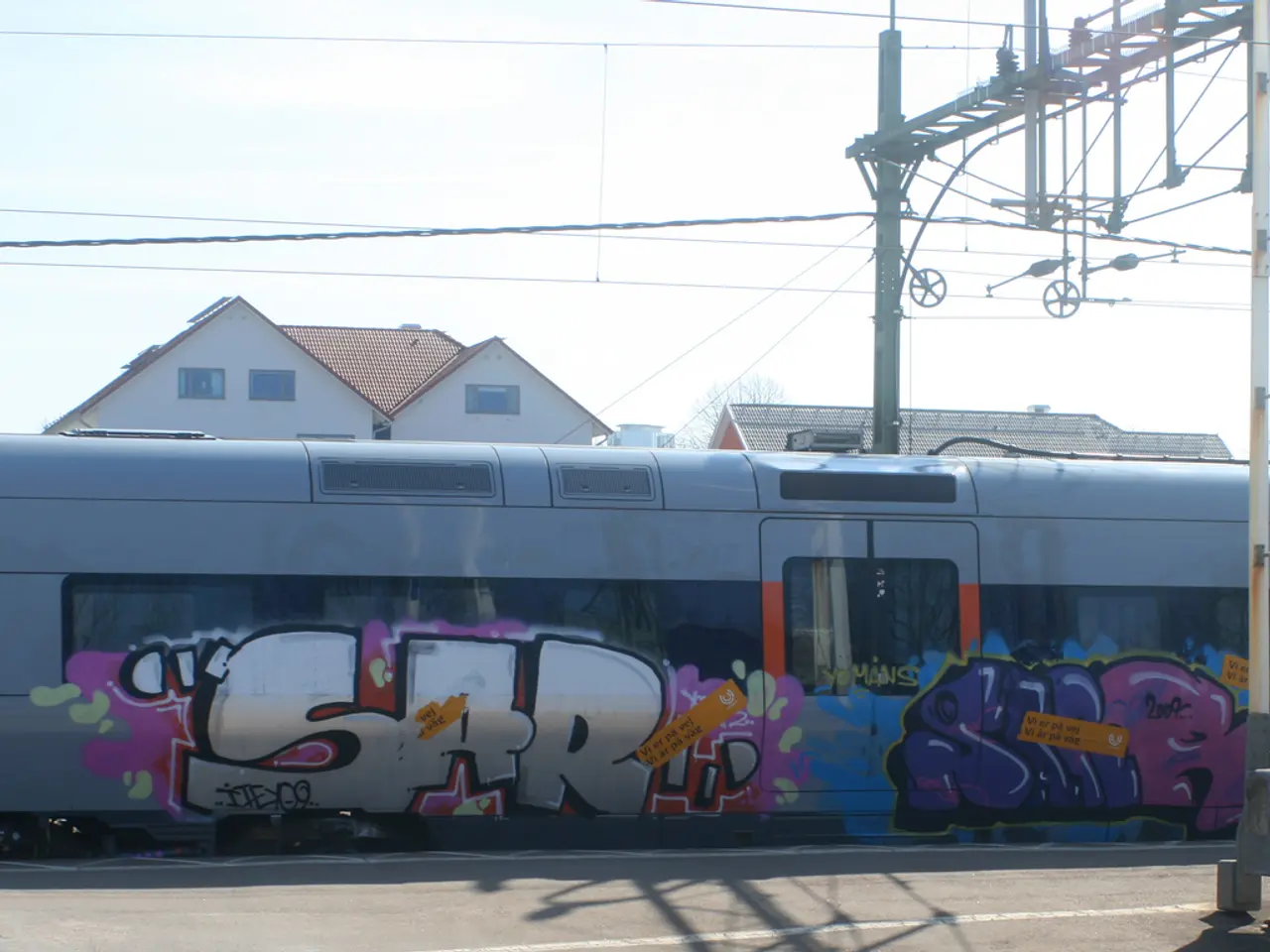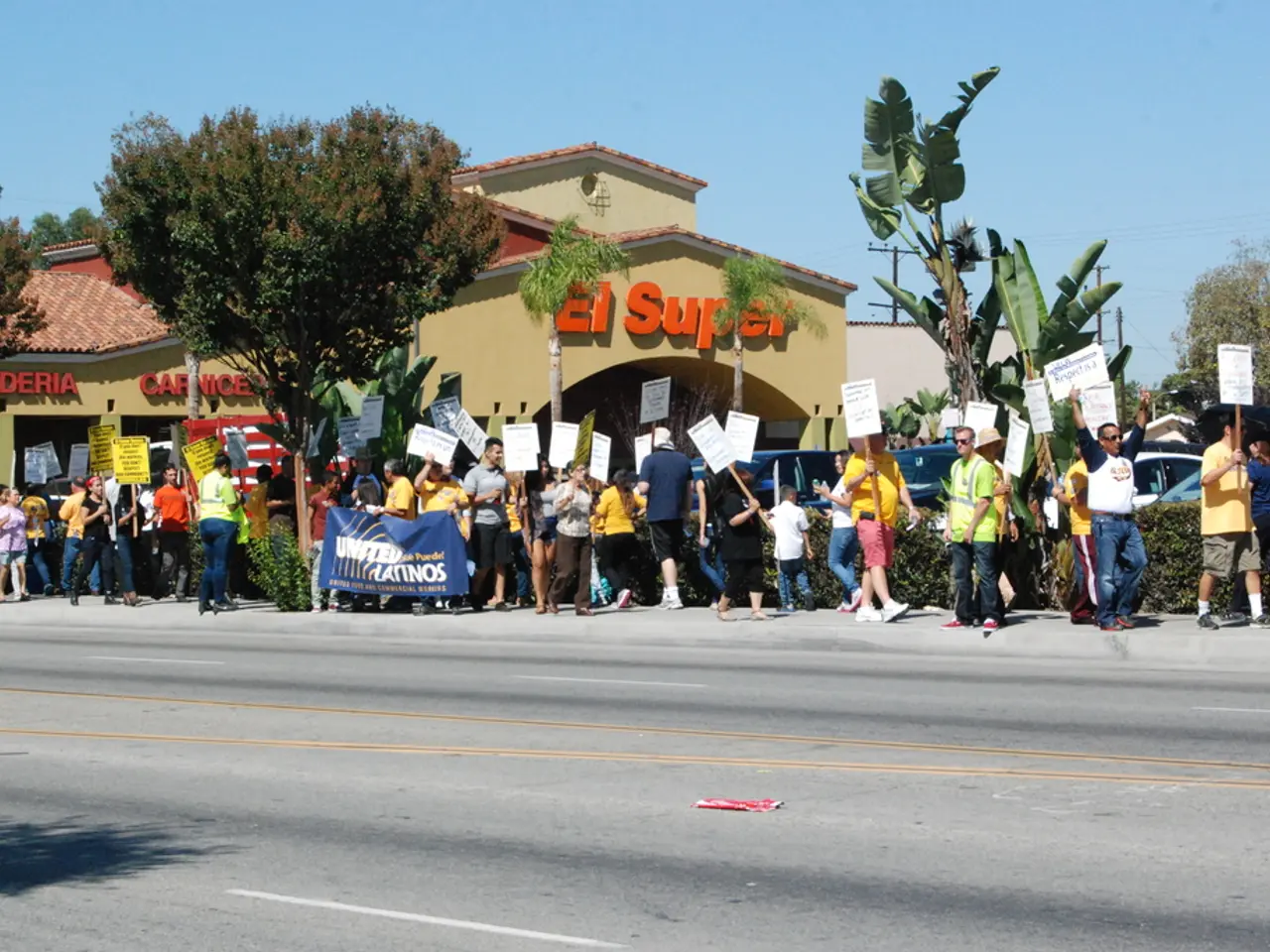Business officials apprehensive about repercussions of Polish border restrictions - Financial officials expressing worries over the potential consequences of Polish border restrictions
In a developing situation, Polish border controls are set to commence on Monday, causing apprehension among German economic associations, particularly the Association of German Chambers of Commerce and Industry (DIHK). The controls, aimed at limiting the "uncontrolled flow of migrants" between Poland and Germany, have raised concerns about potential disruptions to industries such as retail, hospitality, and large industrial companies.
The origins of these controls can be traced back to early May when German Interior Minister Alexander Dobrindt, a member of the CSU party, ordered enhanced border controls and the return of asylum seekers at the Polish border. This decision followed a similar move made by Nancy Faeser, Dobrindt's predecessor, who introduced stationary controls at the border with Poland in October 2023.
The DIHK, in their broader context, has shown tension around border controls. Stricter checks and turnbacks, aimed at combating illegal migration, could disrupt the smooth flow of goods and cross-border labor, which are crucial for these sectors. While direct quotes from DIHK on this specific issue are not readily available, the association's concerns are evident in the broader political climate.
German Chancellor Friedrich Merz and Polish Prime Minister Donald Tusk have discussed border control policies, with Poland rejecting Germany's plans for checks that could turn away asylum seekers. Merz, however, has emphasized that controls will be organized in a way "acceptable to our neighbors," suggesting efforts to minimize economic disruption.
Andreas Roßkopf, the federal police chief of the Police Trade Union (GdP), has expressed concern that the announced Polish border controls could lead to a "ping-pong game" where asylum seekers are not accepted or returned. Martin Wansleben, the president of DIHK, has stated that barriers create new problems for supply chains, employment, and economic cohesion in Europe.
In response to these concerns, Wansleben has suggested pragmatic agreements between neighbouring countries, such as permits for commuters or separate lanes for delivery traffic, as a means to combine security and economic reason. He also emphasized that enhanced border controls should not be used as a political tool.
The Police Trade Union (GdP) is calling for close coordination between Poland and Germany, and clear, feasible, and functional agreements. Donald Tusk, the Polish Prime Minister, has expressed his country's reluctance to implement border controls but is responding to Germany's unilateral approach.
The anticipated impact of these controls extends beyond industries, affecting the care and health sector, regional retail, border gastronomy, and large industrial companies. As the situation unfolds, it is clear that maintaining a balance between security and open and efficient trade and labor mobility is crucial for all parties involved.
Vocational training could be affected in EC countries, as stricter border controls may disrupt the flow of cross-border labor, which is vital for various sectors, including industries that rely on skilled workers for vocational training. The political climate surrounding border controls has raised concerns about potential economic disruptions, highlighting the need for pragmatic agreements between neighboring countries to combine security with economic reason.








